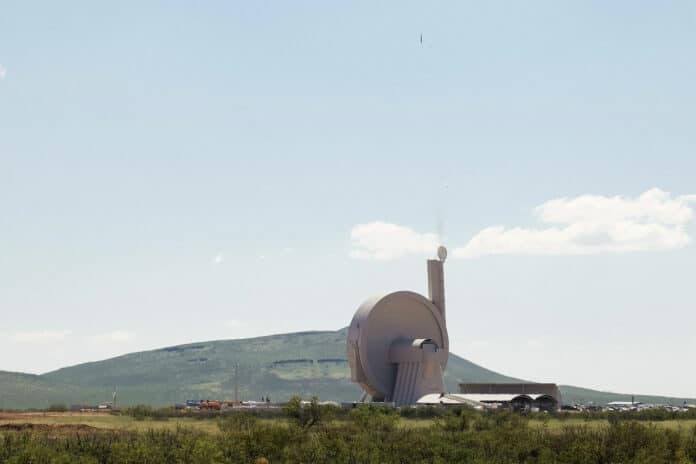A California-based space technology company, SpinLaunch, announced the results of the tenth successful Flight Test of its Suborbital Accelerator space launch system.
SpinLaunch’s kinetic energy space launch system could reduce the dependency on traditional chemical rockets. The technology uses a vacuum-sealed centrifuge to spin a rocket and then hurl it to space at up to 5000 mph (8000 km/h). The peak acceleration would be approximately 10,000 g. The acceleration concept is expected to lower the cost of launches and use much less power. Moreover, it increases the frequency of launches.
In October 2021, SpinLaunch conducted the first test of their accelerator. The launch system successfully propelled a test vehicle at supersonic speeds and ended with the recovery of the reused flight vehicle. Since then, the system has conducted regular test flights with a variety of payloads at speeds in excess of 1,000 mph (1,600 km/h).
Back in April, the startup signed a Space Act Agreement with NASA to test this technology with the intension to integrate and fly a NASA payload on its Suborbital Accelerator Launch System at supersonic speeds. That flight test took place on September 27, 2022, at Spaceport America, New Mexico. During the flight, the accelerator successfully flew and recovered all payloads. It demonstrated that SpinLaunch partners’ standard satellite components are inherently compatible with the company’s launch environment while also providing critical flight data.
In addition to NASA‘s payload, the Orbital Launch System included other payloads from Airbus U.S. Space & Defense, Cornell Engineering, and Outpost. The company hasn’t provided more technical details of the flight.
The data captured from the flight test will help SpinLaunch in further development and eventual commercialization of its launch technology. First orbital flight launches are planned for 2025.
“Flight Test 10 represents a key inflection point for SpinLaunch, as we’ve opened the Suborbital Accelerator system externally for our customers, strategic partners, and research groups,” said Jonathan Yaney, Founder & CEO of SpinLaunch. “The data and insights collected from flight tests will be invaluable for both SpinLaunch, as we further the development of the Orbital Launch system, and for our customers who are looking to us to provide them with low-cost, high-cadence, sustainable access to space.”
